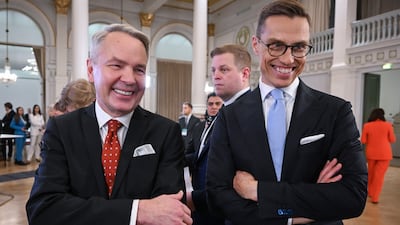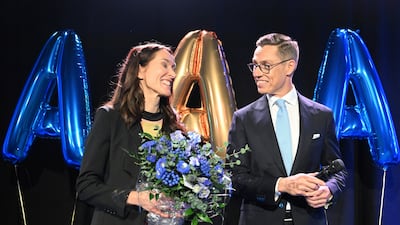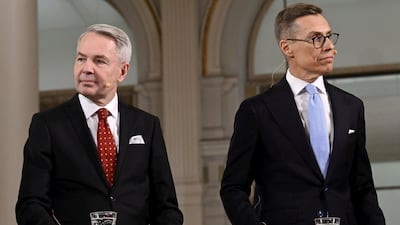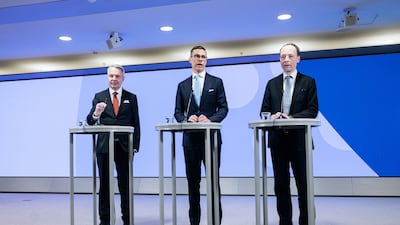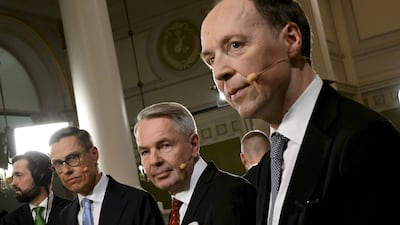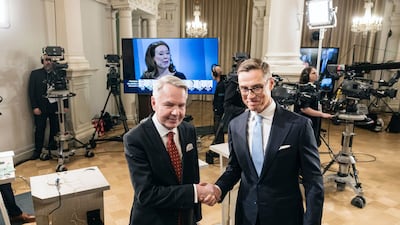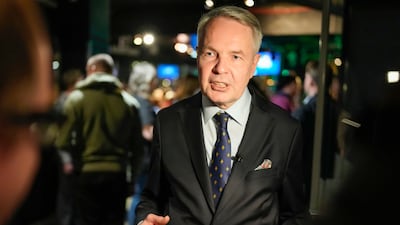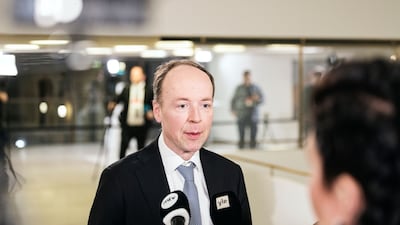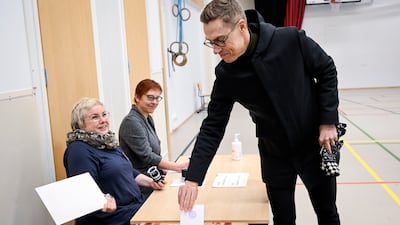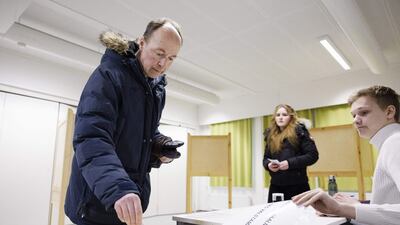Alexander Stubb could become Finland's next president after gathering the most votes in the first round of polls as the country faces the threat of a new Cold War with Russia.
Europe's shifting geopolitical landscape will be the main concern for the new head of state, who also acts as overall commander of the Nordic country's armed forces.
Mr Stubb, of the centre-right National Coalition Party, emerged with a slender lead over his nearest rival, Pekka Haavisto of the Green Party, after Sunday's vote.
Relations between Moscow and Helsinki have deteriorated since Russia's invasion of Ukraine in February 2022, prompting Finland to drop decades of military non-alignment and join Nato in April last year.
Both candidates are former foreign ministers and are vying to replace President Sauli Niinisto, who is set to step down after serving two six-year terms.
Mr Stubb took 27.2 per cent of the vote, while Mr Haavisto received 25.8 per cent.
To win the presidency in the first round of voting, a candidate must obtain more than 50 per cent of votes cast, meaning the two will compete in a run-off on February 11.
Jussi Halla-aho, former leader of the nationalist Finns Party and current Parliament Speaker, received 19 per cent of the vote.
Can Alexander Stubb make a comeback?
Mr Stubb, 55, has been a mainstay in Finnish politics since his appointment as foreign minister in 2008, a position he held until 2011. His energetic but informal style has attracted praise and criticism.
An election victory would represent a comeback for Mr Stubb, who also served as prime minister for 10 months as part of a coalition government between 2014 and 2015, a period which he has previously painted as highly challenging.
He quit politics in 2017, vowing never to return, and became the vice president of the European Investment Bank and later director at the European University Institute in Florence.
However, he reversed his decision after the NCP's success in last year's parliamentary election, when it ousted Prime Minister Sanna Marin.

Politics in Finland, long dominated by its relationship with Moscow, have shifted since the start of the war in Ukraine.
Mr Stubb is seen as strongly pro-western and has been highly critical of Russian President Vladimir Putin's invasion.
“The next president of the republic will be first and foremost a president of the West, a Nato president – and one of our most important relationships is our partnership with the United States,” Mr Stubb said in a recent TV interview.
Last month, Helsinki signed a defence co-operation agreement with Washington, granting the US military broad access along its 1,340km border with Russia.
Finland had previously closed its border amid security concerns over an influx of asylum seekers from Russia.
All candidates in the presidential election support both Finland's independence and its new role as a Nato member, said Hanna Wass, vice dean of the faculty of social science at the University of Helsinki.
Mr Stubb and Mr Haavisto “both have broad experience in both domestic and foreign politics, which voters seem to value the most”, she added. “They have been known figures for a long period of time, for several generations.”
